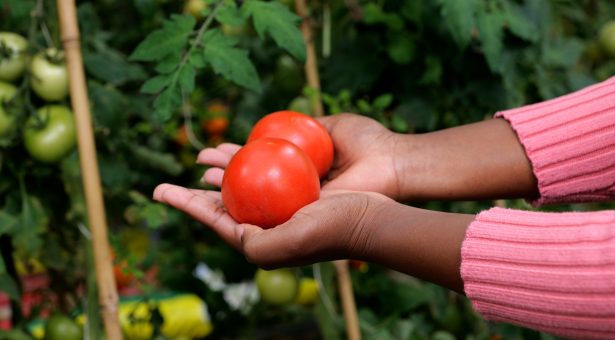
John Innes Centre and Quadram Institute to Conduct Gene-Edited Tomato Food Trial
October 1, 2025| |
A groundbreaking human trial for gene-edited food is currently underway, aiming to combat the widespread Vitamin D deficiency using biofortified tomatoes.
Researchers from the John Innes Centre and the Quadram Institute have developed a tomato that accumulates high levels of pro-vitamin D3—a precursor to vitamin D, also known as the "sunshine vitamin." By precisely tailoring the plant's genes, the tomatoes now contain as much Vitamin D as two eggs, with levels increasing further upon exposure to UV light. This approach offers a sustainable and accessible solution, especially benefiting the nearly one billion people globally who lack sufficient Vitamin D.
The trial, named the ViTaL-D Study, is recruiting 76 participants with low vitamin D levels, aged 18 and above, who live within 40 miles of Norwich, to consume a portion of tomato soup daily for three weeks. The primary goal is to determine whether eating these biofortified tomatoes successfully leads to higher levels of active Vitamin D in the participants' blood. Vitamin D is essential for absorbing calcium and phosphorus, maintaining strong bones and teeth, and boosting the immune system; deficiency has been linked to various serious health issues, including depression and increased cancer risk.
This first-of-its-kind gene-edited food trial represents a significant step forward in using science to address global nutritional needs. If successful, these Vitamin D-enriched tomatoes could be introduced into the food supply, moving away from a reliance on supplements and limited dietary sources. The study's chief investigators emphasize that "Food is health care," viewing the trial as a crucial effort to identify novel ways to leverage healthy, fresh food to improve public health and help individuals worldwide fight the rising prevalence of Vitamin D deficiency.
For more details about this gene-edited food trial, read the press release from the John Innes Centre.
| |
You might also like:
- Edited Tomatoes Produce More Sunshine Vitamins
- Experts Develop Vitamin D-enriched Tomatoes
- Researchers Develop Tomatoes with Higher Levels of Provitamin D3
Biotech Updates is a weekly newsletter of ISAAA, a not-for-profit organization. It is distributed for free to over 22,000 subscribers worldwide to inform them about the key developments in biosciences, especially in biotechnology. Your support will help us in our mission to feed the world with knowledge. You can help by donating as little as $10.
-
See more articles:
-
Plant
- Improved CRISPR-Cas Boosts Tomato's Gene Editing Efficiency
- Argentina Approves GM Soybean DBN8205
- USDA APHIS Deregulates GE Insect Resistant Corn
- Bangladeshi Farmers Gain Higher Yields and Profits from Bt Brinjal
-
Food
- Plant-Based Biosensor Could be Key to Timing Fruit Ripening
- Experts Highlight Hybrid Foods as Meat Alternatives
- John Innes Centre and Quadram Institute to Conduct Gene-Edited Tomato Food Trial
-
Environment
- University of Warwick Develops Strategies to Boost Protein Production from Engineered Cells
-
Read the latest: - Biotech Updates (December 17, 2025)
- Gene Editing Supplement (December 17, 2025)
- Gene Drive Supplement (February 22, 2023)
-
Subscribe to BU: - Share
- Tweet

